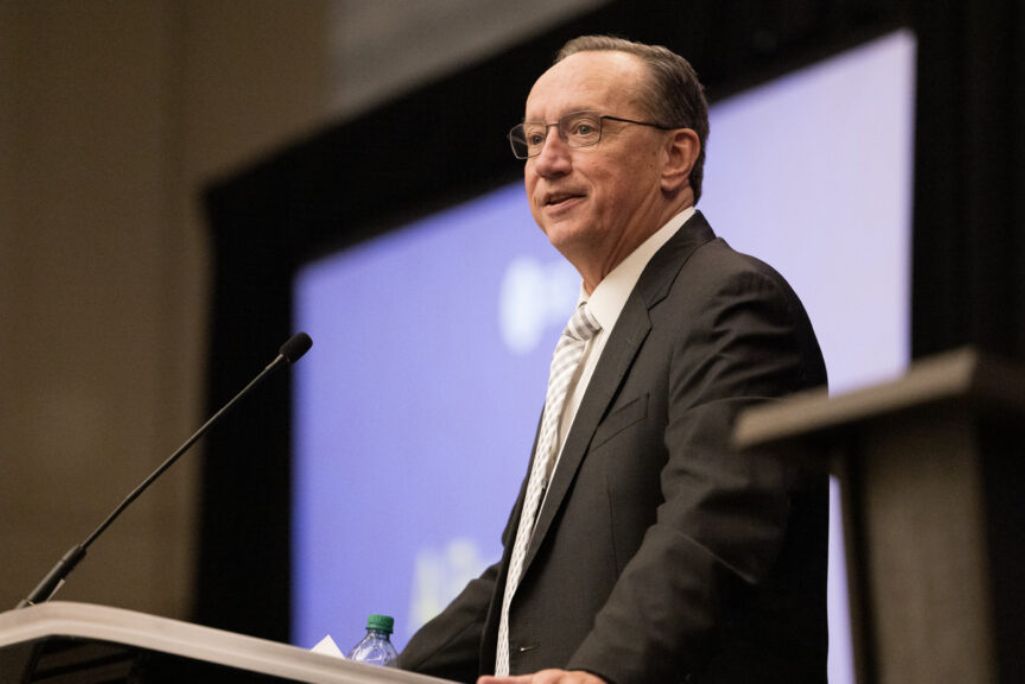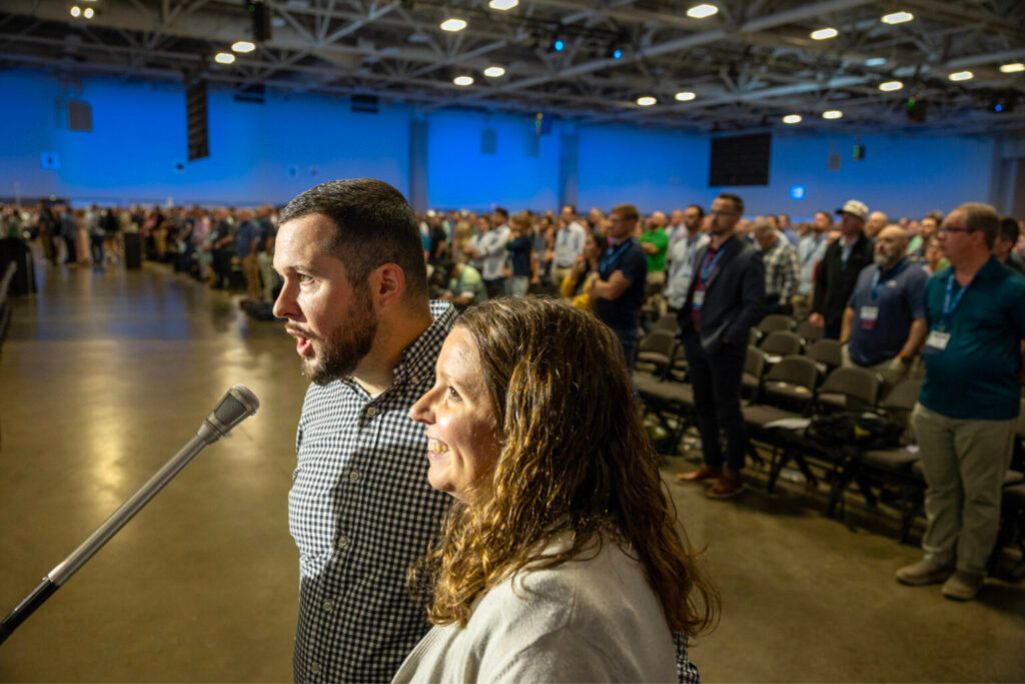The Cooperative Program (CP) is the institutional lifeblood of Southern Baptist missions and ministries. The unified giving plan started in 1925 as a solution to the perpetual, but floundering, fundraising campaigns of Southern Baptist Convention (SBC) and state convention entities.
The CP continues to be a powerful sorting mechanism that ensures local church missions offerings enable Baptist entities to fulfill their purpose: help churches saturate the globe with the gospel of Jesus Christ.
And yet, I wonder if the CP has one arm tied behind its back. Does our missions mobilizing apparatus operate at its fullest potential?
The SBC has been a domestic corporation since it was founded in 1845, meaning only churches in the United States and its territories may participate, according to Article II of the SBC Constitution. Churches outside the U.S. are free to make financial contributions to entities or conventions – and some do – but they are barred from joining the SBC.
To state the case more directly, the SBC is currently receiving money from some international churches that are giving through conventions, such as the Hawaii Pacific Baptist Convention, but does not allow them to send messengers to the SBC annual meeting.
We’re denying non-American churches the ability to link arms with us in our global missions effort, even if they hold Southern Baptist doctrinal distinctives; even if they contribute financially through an existing state or regional convention; even if they are born from International Mission Board (IMB) efforts or led by North American Mission Board field personnel.
Is it time to embrace our Baptist brothers and sisters around the world?
Can we imagine a future where our cooperative effort extends to the farthest reaches of the globe? Will we continue to work toward a vibrant and diverse convention of churches, no matter their nationality?
Here are 10 reasons why I think we should consider creating pathways for global churches to partner with us through the CP.
- We believe cooperation is biblical. Southern Baptists have long held two distinct yet complementary New Testament beliefs about local churches: each one is autonomous and cooperative. Those biblical truths apply in both Charleston and Chiang Mai.
- The CP is effective. Our unified plan of giving, along with the entities supported by it, is often called the most effective missions mobilizing force in the world. Why should U.S. borders restrict our ability to expand the cooperative effort?
- The CP could benefit from international people and resources. International congregations have biblical gifts, talents and resources just like American churches. It shouldn’t matter if Baptists come from Frankfurt or Franklin. Their voices, votes and contributions would be invaluable.
- The CP could highlight the value of smaller global churches. When international churches come to mind, the image that follows is often that of a poor congregation meeting under a shade tree. We recoil at the idea of accepting their money. But the size of a congregation’s CP gift doesn’t diminish its value; it increases (2 Corinthians 8:1-15). Can you imagine the joy a small international congregation would feel knowing their gifts were amplified through the CP for the sake of global missions?
- The CP is built for unity amid difference. Today’s cultural, generational and theological differences among Southern Baptists have been on display recently. Yet, nearly all SBC churches from Seattle to Sarasota continue to happily cooperate with one another through the CP for the sake of the gospel. That’s what it was built for. The CP could flourish with a global network of churches.
- A global CP could accelerate international missions. Pioneer Baptist churches, often aided by our missionaries overseas, must create from scratch their own networks and conventions. Why force them to reinvent the wheel of cooperative ministry? Let’s enable those groups to plug into our existing infrastructure and enjoy the missions resources, theological education and diverse fellowship enjoyed by our American churches.
- Next generation Baptists think globally. Do we want to get younger Baptists excited and involved? Make a way for them to partner with local churches around the world to see the gospel go to all nations. In fact, nearly every young Baptist I’ve spoken to about this subject mistakenly thought the SBC was already open to global churches. They obviously want to be involved in a worldwide cooperative effort.
- The CP needs an expanded vision. In the first 50 years of its existence (1925-’75), the CP grew by leaps and bounds. The number of cooperating conventions more than doubled from 16 to 33, but growth has almost completely stalled for nearly 30 years. We’ve added only two state or regional conventions since 1989, bringing the total to 42.
- A global CP is doable. Is it feasible for every international Baptist church to partner with the SBC? No way. There are security risks, logistical challenges and a thousand other obstacles. But administrative concerns should be secondary to our first principles and a commitment to see the gospel go forward. It will take hard work, but we can do it. Many international Baptist conventions could integrate almost immediately and operate much like our state conventions. Associations in other areas of the globe would take longer to develop. Online or representative voting could enable them to participate in the SBC annual meeting.
- A global CP is already here. Our conventions are becoming increasingly internationalized, because the nations are coming to us, and by God’s grace, we’re sharing the gospel and planting churches among them. There are Southern Baptist churches all over America that hold services in various languages and embrace international cultures, yet they already give through our state conventions and send messengers to the annual meeting. We’re already becoming a culturally global convention of churches right here in the U.S. Let’s embrace our brothers and sisters around the world, and steward the coming changes well.
A final note
What I’m suggesting here is neither simple nor easy. There are real obstacles that stand in the way of a functional and God-glorifying global convention of churches. I solicited feedback on a draft of this article from SBC leaders whom I respect deeply. Some had objections, many of them missiological in nature, and those concerns deserve the most careful attention. I’ve wrestled with these ideas, and I won’t pretend as if this proposal is perfect. Even still, I offer these 10 thoughts to promote discussion about the CP, because it is needed. Given the high-caliber thinkers and leaders currently at home in the SBC, I have every reason to believe that with God’s help we can chart a path forward in a globalized world that utilizes, energizes and modernizes the incredible tool we’ve inherited called the Cooperative Program.


